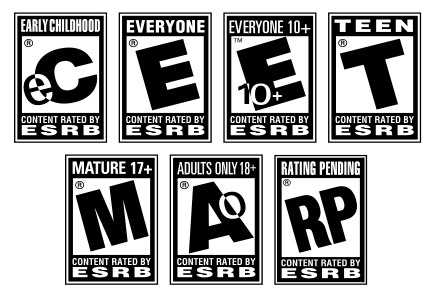Last updated on January 6, 2015
We might call “Hatred” the origin of this particular article series. After all the brouhaha over Hatred, both in the games press and in its temporary removal from Steam, the whole situation had inklings of my own reservations about censorship. We’ll get to the actual game itself at a later date, but for now I want to give some fundamental background to this whole discussion.
As, I think I can say, a proud American, I believe in the principle of free speech as a practical necessity of daily life. I don’t particularly agree with everyone on planet earth about everything, nor should they. They deserve a right to express their opinion, no matter how ill-informed, dumb, or contrary to my own beliefs (those are not related, by the way!). The idea of “free speech” also extends to artistic mediums that convey a message or even just happen to present something objectionable, whatever it may be, on whatever aesthetic means they use. Yes, I may not like it, but no, I will not try to censor it.
Jesus didn’t censor speech either. He let people speak freely, and debate, and ask questions. This makes sense; understanding works much better than decree. You could make an argument that God censored speech He didn’t like, but I would call that a difference case. As Lord of the Universe, we can give Him some slack on giving imperative commands regarding life and faith (philosophers would call this “divine command theory”, which sounds about right). For the most part, and for this present time, God allows us to choose whether to follow Him or not, and that freedom should also extend to our relationships and our daily interaction, not to mention our governments and our civic duty.
Censorship, as it were, always presents you with a double edged sword. On the one hand, we may find something horrific, objectionable, and (this phrase comes up often nowadays) outraged – a word with a specifically moral implication. Think of the children, says Mrs. Lovejoy to the citizens of Springfield, and we use any kind of rhetorical or emotional bludgeoning tool to block someone else’s free expression. That, I think, will lead us down a horrific road. It sets a precedent, a negative one, where we restrict what kind of speech enters into public discourse. That same move led people to conflate religion with the private sphere and politics with the public sphere, by which neither of the two should mingle. In no way do we see that in the Bible, yet you can buy something hook, line, and sinker much easier if it happens to follow your interests at the expense of others.
I like to see it this way: if you are a Christian, nothing is technically off-limits. You follow the Spirit, not the Law. And yet, at the same time, every experience will not provide additional benefit to your life. That comes down to individual preference, tastes, and moral qualms, but that should never constitute an actual ban on something for the vast majority of an audience based on the “outrage” of a few. As Titus 1:15 says:
To the pure, all things are pure; but to those who are defiled and unbelieving, nothing is pure, but both their mind and their conscience are defiled.
Banning or restricting something, especially in a market-based economy, restricts what people can and cannot see because…you said so. That’s why the early Greek city-states fell: people eventually just voted against things they didn’t like, and letting the people rule against “things they don’t like” eventually made them weak and conquerable. Not only is is oppressive, If we want to treat others as we like to be treated, than banning something outright without any real cause (such as, say, violent video games causing violence or some such other disproved nonsense) does not fit into that mold.

From a practical personal perspective, I have never seen censorship, especially in Christian contexts, being useful except to make the work in question MORE enticing than it otherwise would be. It’s the responsibility of parents, not company, to allow their children access in the first place. It’s the same reason why I can’t sue a company just because my young child saw something he shouldn’t – otherwise, who could make anything without the fear of potential litigation from “distressed” parents (not enough frivolous lawsuits to make that point yet?). These freedoms exist so we can live without fear of unwarranted reprisal, not so we can try to “correct” the opinions of others. Squelching difference never helped many countries in human history, that much is for certain.
Thus, I find the best answer remains to simply let things be. I was not put onto this earth to control other people’s lives and how they wish to live them. I am here to love them as they are, just as Jesus loves them as they are, and to judge situations and actions with right judgment, not with my own inclinations of a dark human heart. Cleaving between one’s personal offenses and what should remain accessible to all takes some effort, but trying to ban something still constitutes a daring first step towards a less free exchange of ideas in the public sphere. So it goes with Hatred and other moral panic, shock culture-eliciting products of its ilk (see: Postal, Grand Theft Auto, and I am sure a bunch of other games I can’t name off the top of my head).
A related question should give us further pause: why, exactly, does the Entertainment Software Ratings Board exist? Like the Motion Picture Association of America (or MPAA), the ESRB developed a ratings system to categorize various products into categories, mostly revolving around age groups, but for what purpose? Hopefully this will demonstrate my qualms about “restricted” content. The reality of such advisory boards talks a hard right turn from our idealistic perspective on how such organizations function.
